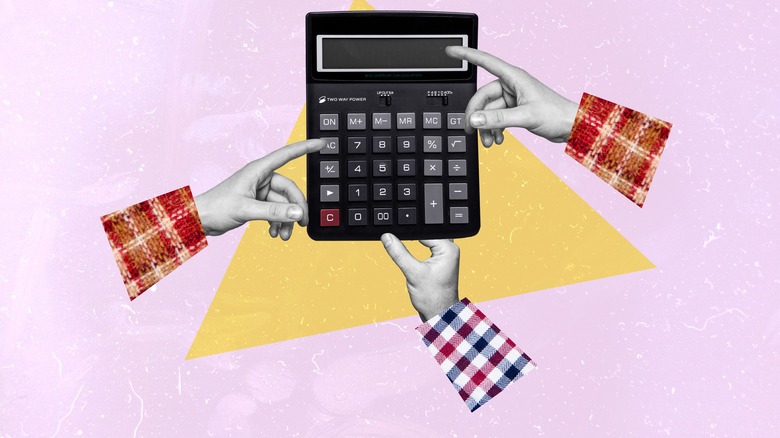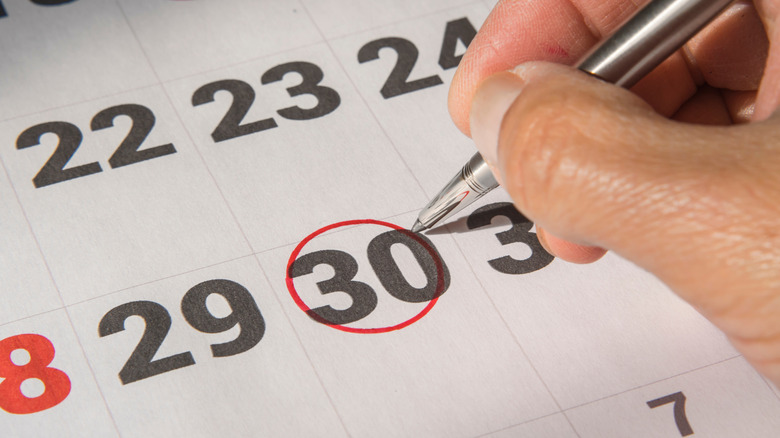Top Strategies To Tackle Impulse Spending Effectively
Impulsive spending is a sneaky trap that can mess up even the smartest budget plans. Often, it's our emotions, crafty advertising tricks, or just the mood of the moment that pushes us to buy stuff on a whim. A study by LendingTree digs into why we often shop with our hearts instead of our heads. Turns out, stress is a big shopping trigger — half of the people in the study said it leads them to make impulse buys. Excitement gets 44% of people reaching for their wallets, and happiness influences 38% to spend. So next time you're feeling any which way, maybe take a breath before you buy.
While you do that, you might fall victim to the few tricks retailers use to make consumers rush to buy stuff. They put up sales that last for a short time or flash deals that make you feel like you have to buy right now. This can lead to spending too much, saving too little, and feeling stressed out. Also, seeing all the fancy things people post on social media can make us want to buy the newest and coolest stuff, even if we don't need it or can't afford it. To tackle impulse buying, we've put together some strategies to help you catch yourself before you splurge. The key is to spot what triggers your shopping sprees and then employ these handy tools to keep your spending in check.
Set a budget
A good budget is like a treasure map. Mark your X and don't stop until you accomplish that goal. A 2024 survey by Discover® Personal Loans, via BusinessWire, shows that the top financial resolutions in the United States were saving more, earning more, and spending less. Turns out, 36% of consumers reported creating a budget in 2024 and this trend is projected to continue with 52% planning to start budgeting in 2025. And you can tell why; budgeting has benefits.
If you plan to buy a house in 2025, a budget can break down your income versus your expenses, so you figure out just how big a mortgage you can handle without giving up your morning coffee run. You can get a good credit score for a better deal on a house if you budget — it helps you pay bills on time and whittle down debts, boosting your credit score. Lenders love that. They might even offer you lower interest rates, which means more money stays in your pocket.
Not convinced? How about if a budget can make you feel good? The same study by Discover® reported that 22% of Americans who stuck to their budgets felt pretty accomplished, prepared, secure, relieved, and confident.
Use of financial tools
The simplest and handiest financial tool you'll ever need is a calculator. It should be your go-to for planning money before you spend a dime. Use it right and you can kick those impulse buys to the curb. For more complex tools, there are apps that can help you stay on track by showing how much money you have left to spend after taking care of bills and savings. This makes it easier to stick to a budget. Then, there are budgeting apps that helps you save without feeling the pinch, making it less tempting to overspend.
Also, automated saving tools can make building up your savings a piece of cake. These apps and triggers automatically move money into your savings account, so you keep saving without any extra effort. No need to remember to transfer money yourself. These tools help you stick to your money goals, whether you're saving for an emergency, a new house, or retirement.
On top of all that, these apps make your financial situation crystal clear as well as diversifying your funds. You can use budgeting apps and automated tools to really take charge of your money. This means you have better control over your spending, and can easily push your extra cash into other financial endeavors like building an emergency fund, getting insurance or crafting an investment portfolio.
30-day rule and Ad tricks
You've by now established that impulsive spending isn't just about being careless with money — it's also tied to emotions. This is why you need to understand yourself better. Now, from experience, you should know to stay away from your credit card when you're stressed, bored, or feeling lonely. Still, a popular strategy is the 30-day rule, where you wait 30 days before buying anything you don't really need. If you want something urgently, try waiting just 24 hours (unless it's an emergency). This pause helps you think about whether you truly need or value something before you buy it, lowering your chances of buyer's regret.
In 2023, You Need A Budget (YNBA) studied over 2,000 adults on their spending habits and found that 64% of this number regret their impulsive purchases. The 30-day rule helps a lot with this — think of it as taking a timeout before you hit the buy button. This pause is similar to practicing mindfulness: you reflect before you act, which helps cut down on buying stuff you do not want.
Also, thinking about the long-term effects of your purchases can change how you view spending. And another thing. Learn to spot how stores and ads try to rush you into buying and how social media makes you feel like you need all kinds of things. Once you recognize these patterns, you can better control what influences your spending decisions.
Cash over credit cards
Besides apps and mental tricks, there are simple, hands-on ways to manage impulse spending. For starters, try using cash instead of credit cards. When you pay with cash, you can actually see how much money you have left and how much you're spending. This makes it easier to stop overspending because you feel the impact of each purchase right away. It's a straightforward trick that really works. For better understanding and practice, grasp the things you should never buy online.
Another smart move is to make detailed shopping lists. Sticking to your list, whether you're shopping online or in-store, helps you focus on what you really need and ignore everything else. Also, get your essentials in one trip to the store and in bulk. This can limit your trips to the store, reducing the chances of getting sidetracked by other tempting items.
To add, unsubscribe from promotional emails and turn off notifications from shopping apps. This way, you won't be bombarded with alerts about those limited-time deals that tempt you to make hasty purchases. When you reduce these distractions, you really take control of your shopping habits, making it easier to buy only what you need, when you need it.
Long-term financial health
Cutting down on impulsive spending takes more than a quick fix. It's all about building good money habits that last. Start by setting clear financial goals. This could be anything from paying off debt and boosting your credit score to saving for a house, a vacation, or a new car. Once your goals are set, keep them in sight by tracking your spending, automating your savings, and maybe even getting some expert advice. These steps will help steer you towards long-term financial stability.
To really keep yourself on track, try using a spending journal or a tracker. This way, you can see exactly where your money goes, celebrate your progress, and figure out where you might need to tighten up. It's like turning your financial journey into a game where you're the champion saver.
Talk to a financial advisor. They can help you sort through tricky money choices and make sure your spending supports your big dreams for the future.





